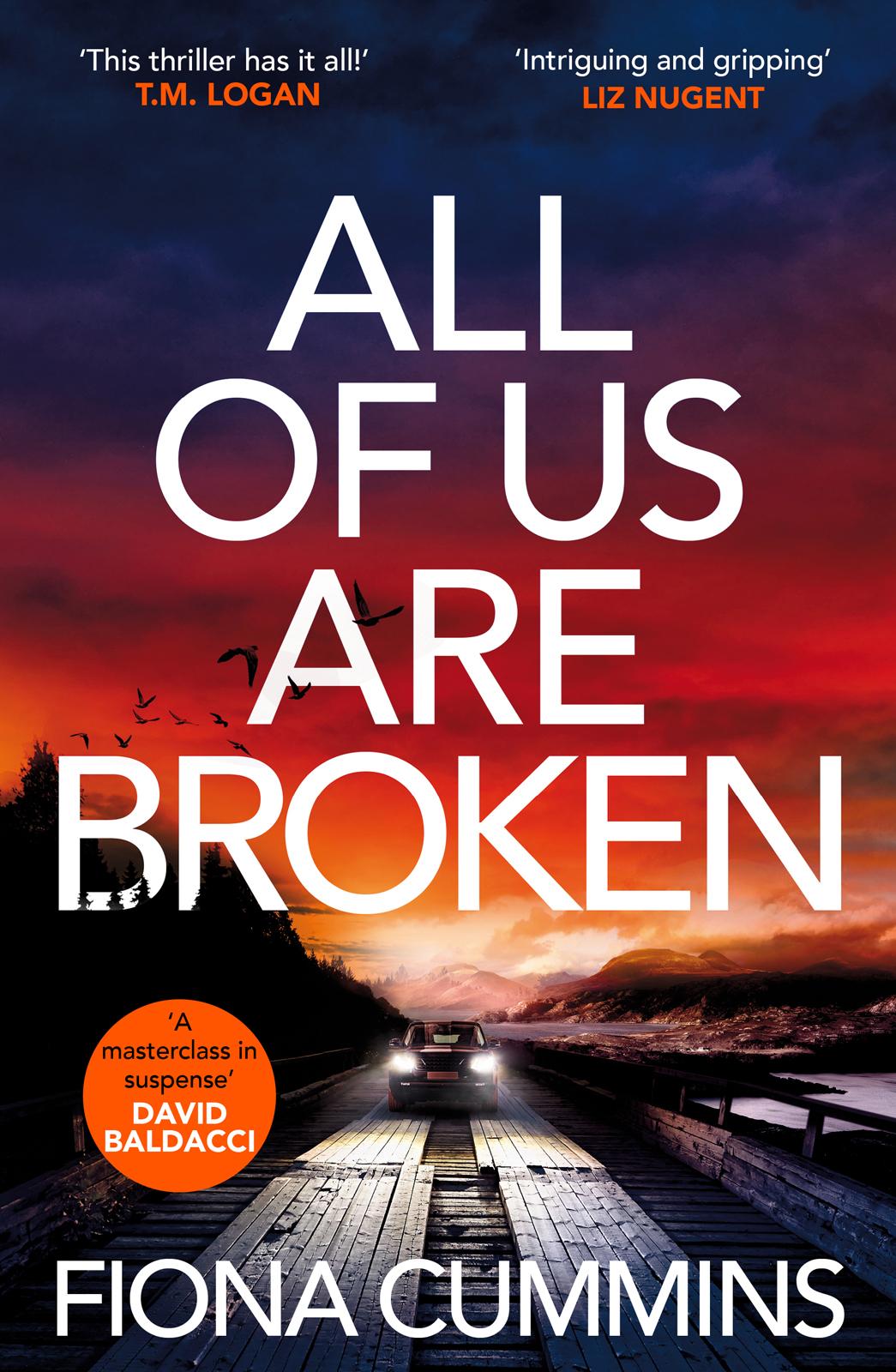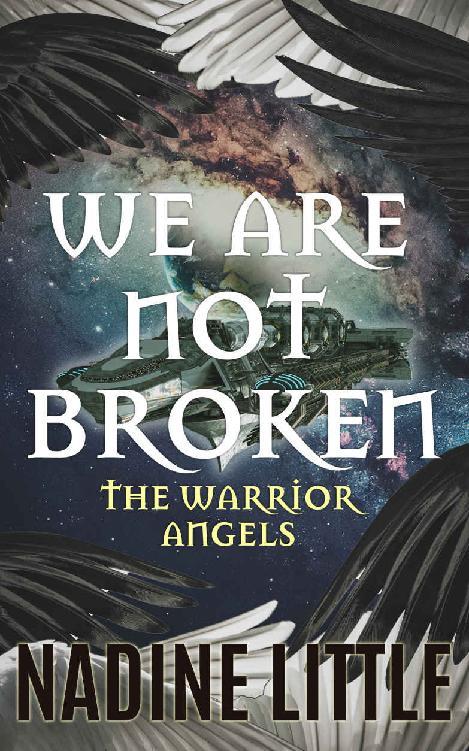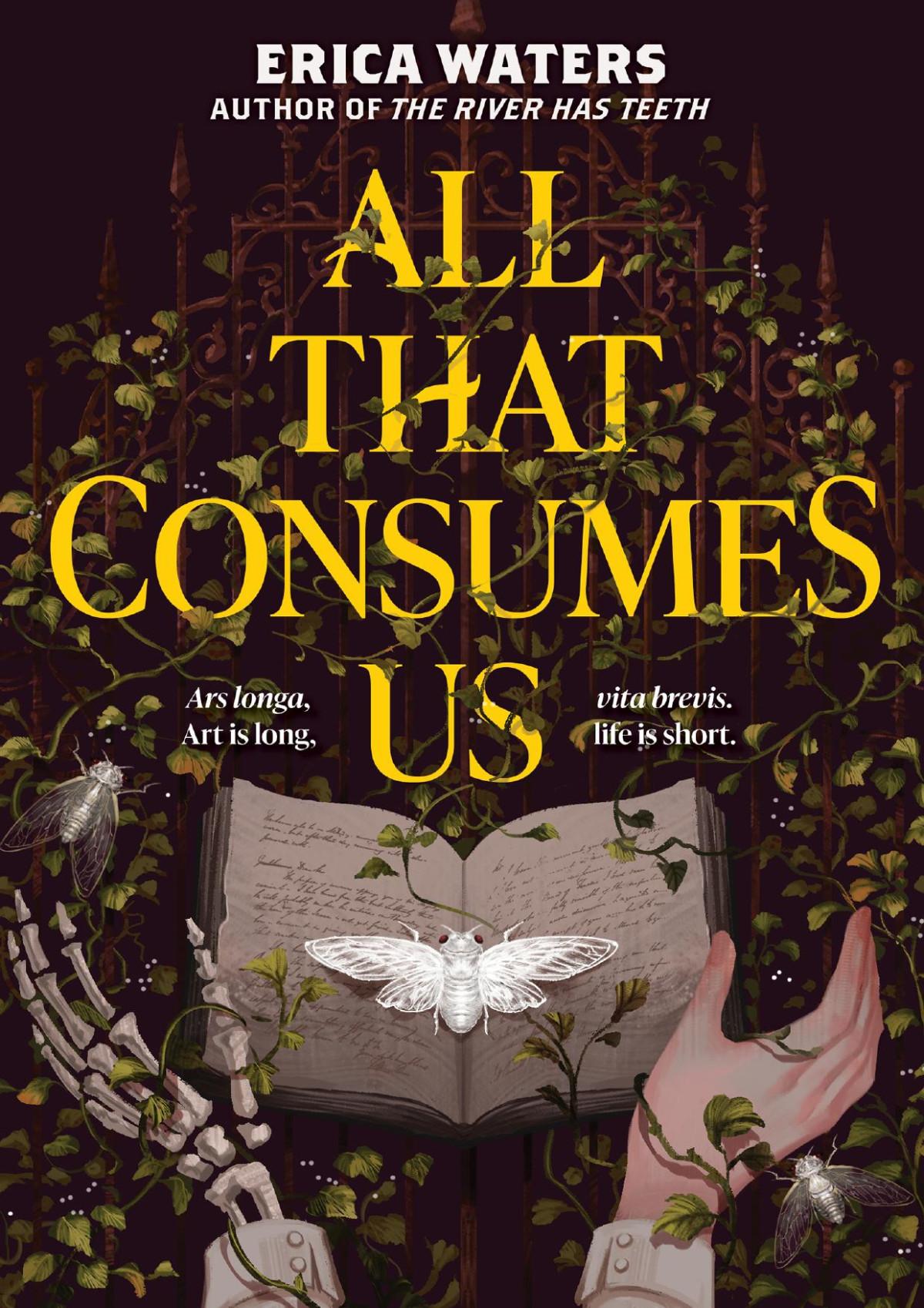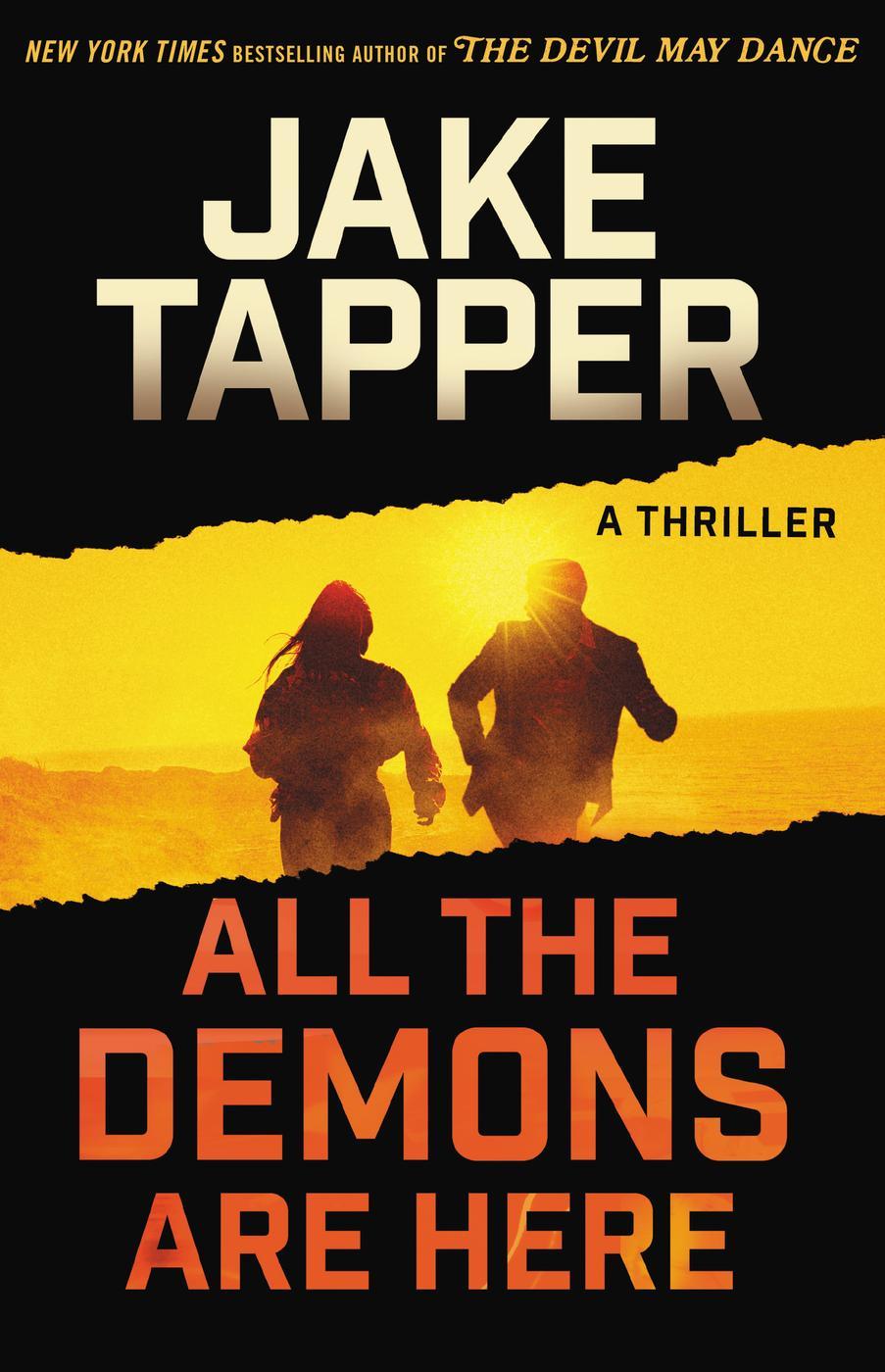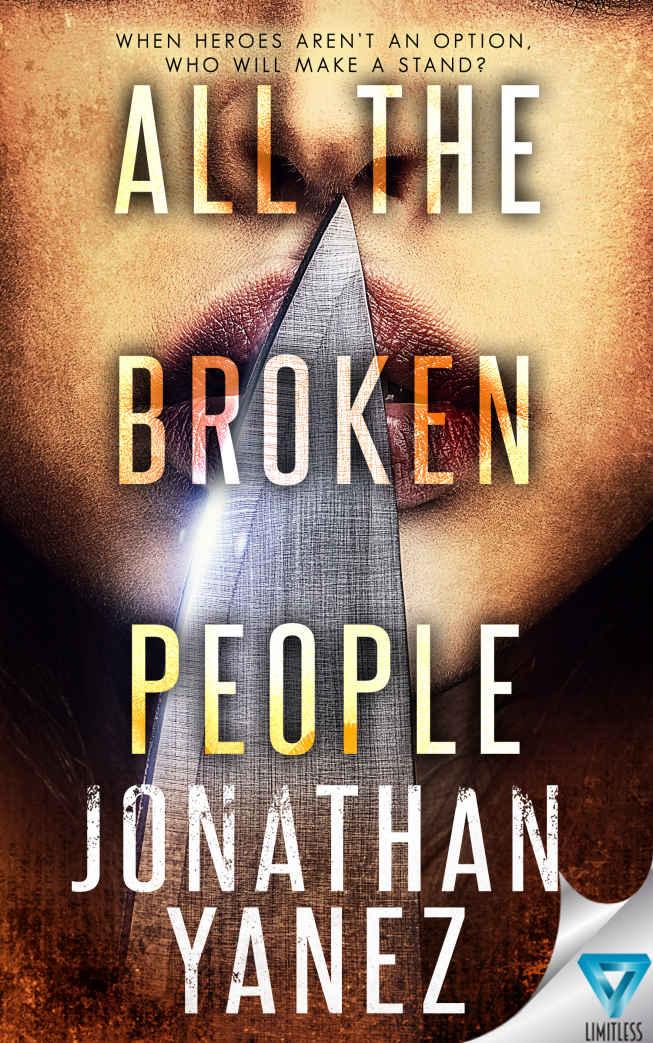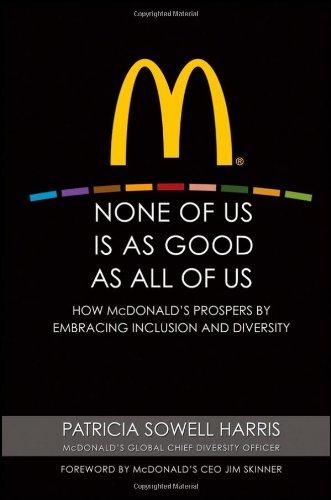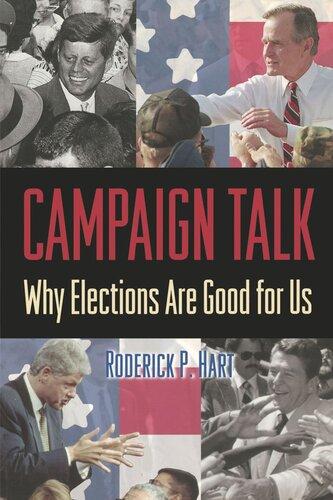PROLOGUE
The Lodge on the Loch: 8.59 p.m.
During the last few months of her life, Christine Hardwicke had thought a great deal about death. The injustice of knowing one light would be switched off while millions of others burned bright and strong. How it must feel to exhale, knowing each breath might be your last. Did an afterlife exist? Or were those countless moments of love and grief and joy that represent humanity lost to the ether when electrical activity ceased? Yes, she’d thought about death. But never her own. Until now.
The gun was warm. She’d always thought gunmetal would feel cool to the touch but the heat of the muzzle against her temple made her flinch, like a burn against her wrist when she grazed it on the oven. From behind her, she could smell his sweat, taste it on her tongue.
Three bodies were slumped across the polished parquet of the ballroom. When the children were little, Christine had told them the foxes, badgers and occasional deer lying prone at the side of the road were sleeping, but there was no wrapping of unpalatable truths in the silk of a lie this time.
Blood darkened the wood, collecting in random pools, their surfaces glinting under the subdued glow of the chandelier. The way the light hit these fjords of plasma and cells reminded her of their honeymoon in Norway, winding their way through the watery veins of the glacier-fed inlets and into the sharp, clean air of the mountains. Charlie had loved the landscape, the austere beauty of it. He’d loved her too with a hunger, an almost insatiable need, she did
not expect to find again. This was an inappropriate thought, as fleeting as a butterfly landing on the fallen in a battlefield, but she recognized her brain was trying to protect her from shock. The arm of a young man – the hotel’s concierge – twitched.
Her daughter Galen, glassy-eyed and trembling, was standing by a set of heavy drapes drawn across double-height windows that gazed upon the lodge’s twenty-five acres of woodland. A woman with a mouth that needed editing and a crucifix at her throat was pointing a pistol at the teenager’s stomach, words pouring from her.
‘Tell him to shut his fucking mouth or I’ll do it for him.’
Christine dug her fingernails into her palms as Galen bent over her younger brother, wiping the tears and snot that streamed from him with the pads of her thumbs.
‘Hush now, Tom. Pretend it’s a game.’ She flicked a glance at the woman, and then a brief, wordless plea at her mother. Galen squeezed the boy’s shoulder and put her hand across his mouth. ‘Stop crying. It’s making her cross.’
He tugged at her fingers and threw his head from side to side in denial, as if this might erase the events of the last hour, his cries rising in volume and intensity. An eight-year-old boy – young for his age – who had witnessed more than any child should. Christine started towards him but the pressure of the gun against her skin –the unrestrained violence of it – was enough to deaden even the most powerful maternal instinct. Comeon,captain.Holdittogether .
A wash of blue and red spilled across the flocking on the wall. The repetitive wail of sirens filled the space between the bodies on the floor, the man and woman with the guns and the Hardwicke family.
The air was sticky with expectation and fear. Christine’s heart was running in her chest, harder and faster with every electronic pulse of sound that drifted from the sweeping drive outside. Through a gap in the drapes she could see cars – nine or ten of them, at least. The policearehere.ThankGod.
The man – she hadn’t caught his name although the woman had whispered it at the beginning, when the Hardwickes had stumbled into this nightmare – stepped from behind her, gun still trained on
her head. Despite the autumn chill that had begun to descend, semicircles of perspiration darkened his blue chambray shirt.
His female accomplice jerked her weapon at Galen, gesturing at her to move. With her free hand, the woman dragged Tom by his wrist, tearing a cry from him. Her lips, a slash of colour in the inverted pentagon of her face, thinned into a line.
‘They’ll try to negotiate.’ The man’s gaze slid to the window, his voice wet and warm, as if his mouth was filled with too much saliva. His tongue poked at a sore that had opened up, a pinprick of blood forming at the edge of the scab before he licked it away. ‘Missy, did you hear me?’
Missy turned to him, her body angled so that Christine could see her expression of – not excitement, although it was close – triumph.
‘I heard you.’
Missy’s eyes were twin stars, bright and hard, and a radiance seemed to emanate from them. She glanced towards the drapes. Those blue and red lights pulsed again, a neon heartbeat. She turned back towards the man. He was talking in short bursts, the machine-gun fire of his words bouncing around the high ceilings and alcoves. Panicked. Agitated. Out of control.
‘Calm down.’ Missy’s voice was amplified in the still of the room but he carried on talking, the vowels and consonants like bullets, ricocheting between the walls, directionless and dangerous. She raised it a notch. ‘Fox.’ At the sound of his name, the man stopped mid-sentence. The pressure of the gun against Christine’s temple eased. Missy’s expression hardened to match her tone. ‘We always knew how this would end.’
Fox staggered forward, a wild light in his eyes. ‘Of course we did. But it feels—’ He gestured towards the bodies on the floor. ‘Not enough.’ His eyes travelled to the children. ‘Remember what we said? We need something more.’ Flicked back towards Missy. ‘So they never forget us.’
Missy smiled at Fox, lips shaped like a bent pin, transforming her face into something sly and hard. Christine and the children watched this interplay, fear swelling their lungs. Something passed between the couple, a shorthand the Hardwicke family did not understand,
but all three of them recognized its malignancy. The air sparked with tension.
Tom began to cry again, quiet sobs he tried to muffle with his fist. Galen pressed her own hand against his mouth but it was not enough to evade the spotlight of Missy’s attention, a feverish, searching thing.
Thirteen hours ago, the Hardwickes had left their home in Essex, brimming with excitement at their trip to the Scottish Highlands. Now Christine didn’t know if they would make it through the next ten minutes. But she wouldn’t look away. She owed her children that.
Missy signalled to Fox, and in one synchronized movement, they’d each flanked a child, their guns bruising the tender hollows of Tom and Galen’s cheeks with a dark symmetry.
‘Do you wantto live?’ Missy was gazing at Christine, head cocked to one side. Her lashes were thick and long, and when she blinked, it reminded Christine of her childhood doll, that same dead-eyed vacuity. The smattering of acne on Galen’s face was obscured by the gun. Her daughter’s eyes met hers. She read fear in them. And determination.
‘Yes.’ Christine was abrupt. Urgent. She buttoned down the panic that was rising in her and tried again, softer this time. ‘Yes. Of course I do. We all do.’ She could not risk antagonizing this woman, who radiated a fearless fatalism.
Yes.Missy imitated her and Fox laughed. He tried it. Yes. With his free hand, he mimed firing a gun at Christine. ‘Boom.’ His eyes darted back to the window again and he ran his fingers around his collar. A sheen of perspiration gilded his forehead. In contrast, Missy looked cool and fresh in her long-sleeved shift dress.
‘At least your mother doesn’t have to wash the sweat out of your shirts anymore.’ Missy laughed as she said this, and Fox laughed too, although he looked confused, as if he couldn’t work out whether she was being witty or cruel. ‘I wonder if they’ll give it back to her, full of bloodstains and bullet holes.’ She eyed the drapes. ‘Do you think the police marksmen have arrived?’
Christine stilled, drawing in a sharp breath and only releasing it when her lungs ached in protest. With a stab of clarity, she understood that both Missy and Fox had resigned themselves to death. But if it was infamy they craved, how far would they go in its pursuit?
‘Do you want to live?’ Missy again. Quizzical. Mocking.
‘Yes. Please. Yes.’
‘Then choose a child to die.’
That far.
Christine’s world tilted and blurred. ‘What do you mean?’ The words were dust in her mouth. As soon as Missy had articulated her demand, Christine had understood what she was asking, but she needed to buy time. For herself and her children. Think,Chrissy, think.
‘One child lives. One dies. You decide.’ Missy giggled at the expression on Christine’s face and fluffed up her own dark hair.
A physical pain consumed Christine. She imagined a hand squeezing her heart until the blood flow was cut off and the organ that had kept her alive for forty-two years withered and necrotized. This was followed by a floating sensation – a disconnect between her head and her body – and a pin-sharp awareness of every sound and smell. She glimpsed Tom’s face, the rounded cheeks that reminded her of the baby he was, and the mess of curls, so like his father. Galen, her girl, her brave and beautiful girl, was sticking out her chin but a single tear tracked down her cheek.
‘Oh, I forgot to say,’ said Missy, still smiling. ‘If you can’t choose between them, we’ll kill all three of you instead.’
The ballroom was freezing. Christine’s breath became air that drifted upwards to meet the scent of pine from the forest outside. The police lights cast a glow that seemed otherworldly. Fox cocked his gun and pointed it at Christine. Missy followed suit, directing hers at Tom.
Galen’s cry of anguish filled her mother’s head and heart.
Time slowed until Christine felt sure the clock on the wall must have stopped, stuck at 8.59 p.m. forever. Her ears filled with a roaring sound. She glanced towards Galen. The girl’s mouth was
distorted, pleading with her, an unforgettable expression on that face she’d kissed a thousand times: a squally newborn who grew into a sunny girl, and now, a desperate teenager. Tom wouldn’t look at her, his palms flattened across his eyes, the laces of one of his trainers untied, body wracked with sobs. Her boy. Her baby.
God, she loved them both.
From the inside pocket of the concierge’s suit jacket, a mobile phone began to ring.
From outside, a disembodied voice identifying herself as Chief Inspector Shona McGill implored them through a tannoy to answer it.
The sounds echoed around the ballroom, silencing them all. Fox gave a shiver of excitement and bent forward, grinning at Missy. ‘It’s started.’
Missy readjusted her grip on the gun she was holding, slid her free hand into the bag she wore across her body and removed the lid of her lipstick before reapplying a coat. She inspected the bottom of the gold tube, where the shade was printed on a perfect scarlet disc. Bang-Bang.
Her finger tightened on the trigger and she smiled with her bloodred mouth, eyes half closed in a sort of ecstasy at the prospect of another kill.
‘Three.’
Christine’s gaze flicked between each of her children: Tom, his eyes screwed up and a thin mewl escaping from him; Galen, defiant but trembling.
‘Two.’
An impossible choice. Unthinkable. But the alternative was worse. Lose one or lose both.
‘Wait.’
Christine Hardwicke’s voice thinned and cracked. Then she lifted her hand and pointed to the child she had chosen to die.
PART ONE ENGLAND
Thirteen hours earlier
TheOldBarn,Hawkstone,Essex:7.12a.m.
The morning sky was streaked with darkness, as if the night wasn’t ready to let go. Christine Hardwicke loaded the last of the suitcases into the boot and breathed in the frozen air, particles of ice prickling her lungs.
The windscreen was thickened by the first frost of the season and it threw her back to the past when Charlie would warm the car for her before she left for work. No chance of that these days. Her divorced friends insisted they were glad to be rid of their husbands but she wasn’t one of them. She missed him, especially today.
Her hands tingled in the cold. The rest of the houses in their hamlet were in shadow – it was too early on a Monday for most sensible folk – and she stamped her feet, intending to return inside for foil-wrapped sandwiches and flasks of hot chocolate before waking the children. A vixen slunk through the hedge and stood on their driveway, surprised into stillness. She had a scar on her left flank, puckering the skin. For a moment, Christine stared into her bright, watchful eyes – a brief connection between human and vulpine – and then she was gone, fleeing into the woods beyond. She must remember to tell Galen. Her daughter was obsessed with the natural world, especially wild animals.
Two weeks until Bonfire Night. She ought to think about sending invitations and stringing lights across the gabled windows and
setting up the model-miniature of the burning Houses of Parliament that had belonged to her grandmother. The sight of those flames flickering in the darkness of the sitting room had entranced her as a child, and that sense of wonder had followed her into adulthood. But her heart wasn’t in it. Tom would ask, though, and it wasn’t fair to deprive him. There would be fireworks and parkin and a guy stuffed with newspaper. In a fit of organization, she’d bought fifty frozen sausages last week and six packets of sparklers. But it was difficult this year. More difficult than it had ever been.
Christine had told Galen’s school, St Agnes’s, the truth and they had authorized her absence. The headteacher had even sent a thoughtful handwritten note, which had arrived yesterday. She would pretend Tom had a sickness bug. His primary school was much stricter about this sort of thing – Mrs Birch, the head, had ambitions regarding pupil attendance records – and that would buy her two days’ grace, at least.
She shut the boot carefully – don’twaketheneighbours– and walked up the garden path. In the glow cast by the outside light, the frost gleamed. Charlie’s favourite weather, cold and crisp. Even now, she expected to see him framed in the doorway, arms outstretched, ready to warm her up. But there was only an empty hall and the shadowed stairs beyond.
Stars, bright but distant, were still visible in the clear sky. Daylight would disappear them soon, painting over the constellations with the brushstrokes of a new day, and it saddened her. Memory was like that. Over time, it blurred, and new memories papered over the old ones. But they were always there, even if they were hidden.
Don’tgetmaudlin,Chrissy.
The house was still with sleep. Tom was breathing deeply, his favourite knitted blanket tucked beneath his arm, and the heat rose from his cheeks. She worried about him. He’d been quiet of late, but whenever she’d probed him about how he was feeling, he’d dismissed her with a single word: ‘Fine.’ She leaned over and kissed him. ‘Rise and shine, captain.’
He stirred, eyes closed but a lemon-wedge smile curving his mouth. ‘Is it today yet?’
‘Yes, it’s today.’ She dropped another kiss, this time on his forehead, and switched on the light. ‘Get dressed into something warm. It’s freezing outside.’
In Galen’s bedroom, the curtains were open and the radiator was off, but her daughter had kicked off her covers, seemingly oblivious to the frigid air. Christine stood by the teenager’s bed, watching her sleep. Her pyjama bottoms were too short for her, exposing her calf and the delicate nub of her ankle bone. Her arms and legs had lengthened, almost overnight. In video footage Christine had filmed at Charlie’s last birthday, she’d seemed so young, excitedly handing her father his present and taking her turn at blowing out the candles. But now she was knocking on the door of womanhood.
She touched Galen’s arm, a fleeting contact, knowing how much her daughter hated to be woken up, favouring a gentle introduction to the new day. The corner of one of her posters – a photograph of a dolphin leaping from the water – had come unstuck from the wall and she smoothed it back into place, feeling the lump of Blu-Tack beneath her thumb.
‘Honey. We need to be on the road in half an hour.’
Galen stirred, reaching for her duvet and burrowing into its softness. The girl opened her eyes and shut them again. On the bedside table, a framed photograph of her father had been placed face down. A surge of tenderness warmed Christine and she bent over to whisper in her ear. ‘Nice try, sunshine. But it’s time to get up.’
She slipped from the bedroom, knowing her girl would drag herself from bed when she was ready and not a moment before. It frustrated Christine, but Galen had never been late for school, so she’d learned to trust her. If she needed help, she’d ask for it. Even when the clock was turning over minutes at pace and the bagel she’d toasted had gone cold, Christine resisted the pull to sour the morning by shouting upstairs to hurry her along.
Tom was getting dressed. She could hear him singing, the clear high notes of a carol. Tooearly,Tom.It’snotevenNovemberyet. But still, she paused on the landing, savouring the sweetness, the occasional stumble. The tune was familiar, conjuring the ghosts of Christmases past, drinking mulled wine and peeling vegetables with
Charlie, their voices raised in joyful abandon. She could almost smell the orange slices they’d bake in the oven and string together in garlands, those repeating discs of sunshine a nod to the return of light after the winter solstice.
But she wouldn’t bake oranges this year and the stairway was dark and cold. She could hear the tick of the grandfather clock and her feet were chilled by the floorboards, covered only by a threadbare rug.
She longed to call him.
Her fingers touched the screen of her phone. She mustn’t keep doing this. It wasn’t healthy, not now. Ten months had passed. She should be moving on. At least, that’s what Carmen said.
The clock chimed once, a rolling and melodious marking of the half-hour. Carmen’s husband had left her for a woman at work, nine years younger and three stone lighter. It was the mornings that tormented her, her best friend explained, imagining the two of them in the cloaked intimacy of dawn. Every day for a month, Carmen had called him at this time, on some pretext or other, knowing that guilt would compel him to pick up. ‘Why should he get to lie in bed with herwhile I keep the home fires burning? He’s got three children. He should be thinking about them instead of shagging Miss Younger and Thinner.’
Christine didn’t disagree. But she recognized the nuances of marriage in a way her younger self had not. The lines in the sand of her thirties – fidelity, honesty, loyalty, solvency – had been kicked over, blurred by the realities of life in all its messy glories. She didn’t point out to Carmen that her acerbic criticisms, shopping addiction and refusal to spend time with her in-laws had probably contributed to her husband’s dissatisfaction in the same way his alcoholism and quick temper had contributed to hers. Marriage was an imperfect state.
But in all the years they had been together – two decades and four months – she had considered herself lucky. Unlike Carmen, who’d started to complain about her own husband within a year of their wedding, Christine had never wanted anyone but Charlie – and
had never doubted his love, not once – which made his absence all the more painful.
She succumbed to temptation and dialled his number, wishing he’d pick up.
It rang once before going to voicemail. Hey,it’sCharlieHardwicke. Ican’tcometothephonerightnow,butpleaseleaveamessage afterthetone.
She imagined him lying in the dark somewhere, eyes closed, lost to the night. At least Carmen’s husband answered his phone. Charlie never answered his. She’d caught Galen talking to him a few weeks ago, her voice a murmur through the bedroom door. Christine had lingered on the landing, torn between wanting to hear what her daughter was saying and the guilt of eavesdropping, of prying when it was none of her business.
In the end, she had compromised, standing as close to the door as she’d dared, fixing her gaze on the framed painting opposite instead of through the crack, as she’d wanted to.
‘I miss you, Daddy. I wish you were here.’ A pause.
Christine had stifled the sound that rose in her by driving the bulb of her thumb into her mouth and biting down. She could hear Galen crossing her carpet and fiddling with the bottles of nail varnish on her dressing table, followed by the tell-tale clink of her knocking them over.
‘I came top in a science test again this week. Mrs McGovern says if I carry on at this rate, I’ll be winning a Nobel Prize before too long. But I told her I’d rather be an explorer or rescuing animals.’ A laugh. ‘Or both.’
Another silence. Galen’s laugh turned into a half-sob. Christine had held her breath, a pain in her chest, pressing down on an instinct to go to her, knowing that wouldn’t be what she’d want.
‘Mum cries a lot, but mostly when Tom is asleep and she thinks I’m chatting to my friends. She’s not eating much either. I’m worried, Dad. About what happens to her when, you know—’
Tom’s bedroom door had opened then and he’d wandered out, holding his blanket. ‘What are you doing?’ He’d blinked at her, waiting for her reply. ‘Nothing much.’ She had smiled, a quick
quarter-turn that brooked no further questions and guided him back to bed. Not for the first time, she’d thanked her lucky stars he was easily distracted.
But that was last month, and she couldn’t believe how quickly the weeks were sliding past. As a child, she’d been impatient, wishing her life away, longing for the next school holiday or birthday, but now she wanted time to slow down because, as it turned out, there was never enough of it.
She could hear voices, Tom chatting to his sister and Galen giggling at something he’d said. They would be down in a few minutes, and then they would hit the road. If Charlie was here, he’d be up there with them, joking around and making them laugh.
Christine lifted her mobile to her ear and pressed redial. Hey,it’s CharlieHardwicke.Ican’tcometothephonerightnow,butplease leaveamessageafterthetone.
Her heart clenched, tears spilling over. ‘I miss you, Charlie. Please come home.’
Midtown Primary School: 8.41 a.m.
The classroom was quiet and then it was not. The voices of thirtythree four- and five-year-olds filled the space, a flock of chattering birds, squawking over each other, jostling and chirping, hanging coats on their pegs and dropping their gloves, some laughing, one playing the fool. All of them vivid with youth.
Miss Smith, whose mouth tasted of stale white wine and regrets, could not decide which was causing her the most discomfort: the pounding in her head, the steadily rising volume in Reception or her ill-fitting bra. Even at 8.41 a.m., her patience was wearing thin. Gerard said she looked like a slut in her flimsy scarlet knickers and the matching triangles of lace that covered her chest. ‘Not suitable for work,’ he’d said, but what he’d meant was not suitable for a staffroom filled with married men and their mid-life crises. A bit rich coming from a man who was still a virgin at twenty-seven. As if she gave a toss what he thought anyway. She likedknowing her underwear was sexy, at odds with her unofficial work uniform of fitted skirts and demure jumpers. She was hardly going to show it off to her colleagues, was she?
The deputy head, a florid, no-nonsense older man called Jonathan Blakeney, had been waiting by her desk when she’d arrived that morning, too late for the staff meeting and barely in time for registration. As she’d half run into the form room, hair still damp from the shower, his eyebrows had lifted but he did not comment. Instead, while she shrugged off her coat and searched for a pen to take the register, he’d reminded the pupils to sit and, for the love of God, to keep the noise down. The volume continued to rise.
Miss Smith knew this was her cue to assert her authority but all she could think about was the softness of her pillows and a few extra hours of sleep. Gerard had taken her out for dinner to celebrate their engagement and she’d kept drinking until he’d had to carry her home. She hadn’t told him the reason she’d sought solace in the bottle was to blunt the edges of her disappointment. The diamond was embarrassingly small. She shouldn’t have said yes but she’d felt sorry for him, asking in front of those teenagers, messing about on the beach and catcalling him. He was solid and dependable, even if he didn’t believe in sex before marriage. And his flat was nice. She didn’t want to move back home again. Who else would want her anyway?
When he’d punched the air and called his mother, it had felt too late to retract her acceptance. She would need to do something about that.
She ran her tongue around the inside of her mouth. It tasted sour. She’d overslept and missed breakfast. Mr Blakeney’s eyes were upon her – she felt his censure too – but she tried to ignore him.
Instead she began to clap, a slow and repetitive sound designed to break through the Monday morning chaos. One by one, the class fell silent except for Dylan Adams, who was scribbling on Aakashi’s phonics workbook, much to the young girl’s chagrin.
‘Stop that.’ Too weak. Miss Smith bit her lip, waiting to see if he’d do as she’d asked. She wished Mr Blakeney would fuck off. Didn’t he have an assembly to prepare?
Dylan tossed his pencil onto the desk but he didn’t seem chastised. Even at his tender age, there was defiance in his expression, an attitude Miss Smith recognized because she saw it every day when she looked in the mirror.
She pointed to a chart on the wall, a fat yellow sunshine with an upturned smile and a dark storm cloud a few centimetres below. ‘Do you want to start this week on the cloud?’
Dylan shrugged. ‘I don’t care.’
‘I don’t think that’s true.’
‘Is.’
‘Well, okay then.’
Every pupil in Reception was presented with a laminated magnetic rectangle printed with their name when they joined the school. Miss Smith found the one with DYLAN on it and placed it on the cloud. His was the only name there. His face fell but only briefly, and then he laughed and hit Aakashi on the arm.
‘Dylan.’ Her reprimand was sharp. ‘You will sit here where I can see you.’
The boy sulked his way to the empty chair at the table in front of her desk. The classroom door opened. Helena Wilson, a teaching assistant with a second home in France and grown-up daughters, walked in with Zayn Costello, who was wearing too-big trousers borrowed from Lost Property.
‘Sorry.’ She mouthed the words. ‘Bathroom emergency.’
‘Miss Smith,’ said Mr Blakeney, now Helena was back to supervise. ‘A word outside, if I may.’
She followed him into the corridor. His mouth was fixed in a sourmilk smile. He had been her mentor since she had joined the school and although she didn’t know him well, she knew enough to read his displeasure. He wiped his palms on his trousers and sucked in air through his teeth. ‘You missed the staff meeting this morning. It’s the third time you’ve been late this term.’
‘I overslept. And then my car wouldn’t start.’
‘You do realize you’re on probation?’
A headache thrummed between her eyes. She rubbed the bridge of her nose to excise the pain but it made no difference. She didn’t care – gave precisely zero fucks – but she couldn’t say that out loud. She hated teaching, had realized her mistake as soon as she had started, and only the need for money had prevented her from quitting. ‘I’m sorry. It won’t happen again.’
‘You’re right. It won’t.’ His eyes slid to her chest and lingered there. ‘I suppose I ought to let you get back to class. The register won’t take itself.’ She started to leave but then he reached for her wrist, to stall her. ‘I can put in a good word for you, if you like.’ That sour-milk smile glistened as he wet his lips with his tongue. ‘With the head, I mean. We could talk about it over dinner tonight.’
The feel of his hand against her skin repulsed her. He was thirty years older than her, at least. The glint of gold confirmed his marital status. She did what she always did when men like this – and there were so many of them – approached her.
She leaned into him, her breath warm against his ear. He stilled, not quite believing his luck. Her voice dripped with honey. ‘I would rather impale myself on a rusty nail than spend a moment longer with you than I have to.’
The Coastguard’s Lookout, Midtown-on-Sea:
7.59 a.m.
The kittiwakes were scavenging offal and discards from the fishing boats, their screams piercing the cold air. A man in oilskins was hefting baskets of herring onto the jetty while the engine of a nearby tug thrummed in the stillness, its rudder spiralling cracks across the surface of the sea.
The detective Saul Anguish had been awake all night, and now the first rays of dawn were breaking over the marshland, he rubbed the tiredness from his eyes and stood in the upstairs bedroom of the coastguard’s lookout, watching the birds fight over the scraps.
It was sixteen hours since he’d heard from Blue. Sixteen hours since she’d messaged or called or updated her social media feeds. She’d spent the previous day preparing to appear as an expert witness in court – her real name was Dr Clover March and she was a talented forensic linguist – and then she had planned to have dinner with her sister. Followed by an arrangement to spend the secret dark hours with him. But she hadn’t showed up.
Saul had lain awake, watching his phone but pretending not to. It was a loose arrangement, after all. They were not boyfriend and girlfriend, but now-and-again lovers when their schedules allowed. They were still unwrapping the layers of each other. Still uncertain and hesitant and feeling their way.
But he couldn’t deny he felt protective over her, especially since that afternoon last year when he’d found her, dazed and wandering, with her shirt undone, sexually assaulted by a police officer during
one of her narcoleptic episodes. Detective Constable Douglas Lynch, who had an extreme phobia of birds, had paid dearly for his actions. By way of retribution, Saul and Blue, under cover of night, had filled his house with dozens of lovebirds, budgerigars, finches and canaries, their bond strengthened by this shared transgression. But their friendship ran far deeper than that.
Both were naturally distrustful. Both hid secrets in the darkest reaches of their souls. But a fire burned between them and they did not – could not – fight it. They did not discuss what was happening. Instead they lost themselves in the liquid heat of their lust whenever they could. Saul would not admit he wanted more and Blue had not suggested it.
But that didn’t stop him from wondering why she hadn’t been in touch, or shield him from the sting of what felt like her rejection. He wanted to kiss her, to press himself against the furnace of her body. To hide them both behind the cloak of the night and burn with her. But he would not call her. Not because he didn’t want to. But he tried not to pressure her. He respected her boundaries. She always called him.
Except last night.
Forfuck’ssake,Saul.Getagrip.
The kittiwakes rose in a tornado of cries and beating wings, their brief sojourn to shore over before returning to the sea where they wintered. Saul watched them wheel across the iron skies before dressing quickly and heading into the new day.
4
Midtown Primary School: 8.59 a.m.
The birds were squawking when she returned, like fledglings that had fallen from the nest, demanding attention from their mother. The completed register was on her desk. Helena, efficient as ever. Dylan was scribbling on his chair with a black felt-tip pen.
Miss Smith had read his file when he’d joined Midtown Primary. On the surface, he had everything going for him. A well-kept family home with a spacious garden, and parents with good jobs. Loving grandparents and extended family. A playroom full of toys and expensive gadgets.
But his mother and father were rarely home. He was shunted between his grandparents and babysitters and au pairs that changed with the seasons. She had visited the homes of all her new charges before they started school and his had been the only one with neither parent present.
She knew what it was to be a victim of parents who didn’t care.
His grandfather, a soft-bodied man with liver spots on his temples and glasses that were too big, had talked her through Dylan’s early years. ‘He’s a spirited boy, a bit over-enthusiastic at times.’ When Dylan had thrown a car at the television and cracked the screen, she’d admonished him, even though it wasn’t her place to do so, but his grandfather had offered up an indulgent smile. ‘It’s not the first time. Boys will be boys, eh?’
Boyswillbeboys.
How many times had their bad behaviour been excused because it was expected? Is that when it started, when they were four and their boundaries were so elastic they might as well not exist? Was
this why Mr Blakeney, a key part of the senior leadership team, thought it appropriate to ask her – a newly qualified teacher – out for dinner? What about girls? Or women? Were they allowed to be bad too? Gerard didn’t think so. In his eyes, women should be compliant and grateful, and why did she accept his proposal last night when she had no intention of marrying him?
Why was her life such a fuck-up?
Her head was full of noise, the abrasive kick of a katydid’s wing on a summer night. Katy-did.Katy-did.Katy-did.She shook herself, trying to dislodge the buzzing that filled all the gaps in her mind and left no room for clarity or precision of thought. She tried to concentrate on the morning’s lesson. Phonics.Story-time.Number recognition.But she couldn’t silence the rasp and click of the insects. She needed water. Something to eat. A reprieve from her cottonwool brain overstuffed with feral children, and the wet lips of Mr Blakeney, and Gerard’s wedding proposal.
‘Miss Smith—’
She spun around, a dazed expression on her face. The noise in the classroom was building again. From the corner of her eye, she could see three or four children out of their seats. Helena was holding a stack of brightly coloured cards printed with phonemes, her voice tight, a frown crumpling her forehead. ‘Shall we press on with the lesson?’ A step closer, quieter now. ‘The children are getting restless.’
‘Sit down, children,’ she said. But her voice was little more than a whisper.
One of the boys was standing by the sink. He turned on the tap and flicked water at his friend, who laughed and flicked him back. The spray landed on one of the girls – Aakashi again – sitting at a nearby table, and she screamed and started to cry. Dylan ran over, cupped his palms beneath the running tap and flung it towards her. Another girl – Aakashi’s best friend – jumped up from her chair and pushed him, determined but lacking in power.
Miss Smith opened her mouth to chastise them – to call her class to order – but no sound emerged.
The following sequence of events, no longer than five or six seconds, seemed to unfold in slow motion.
Dylan placed his palms on the girl’s chest and shoved her back. He was one of the oldest in the year and a sturdy boy, used to wrestling and rough play. Her name was Katie Andrews and she was slight, smaller than average, with limbs like freshly grown branches, thin and vulnerable.
Katie stumbled backwards, arms pin-wheeling, trying to maintain her balance. But she tripped over Aakashi’s foot and couldn’t right herself, her four-year-old body clumsy and lacking the more refined co-ordination of an older child.
The back of her head struck the enamel sink with a crack that sounded like the firing of a gun and there she lay, still as the clay sculptures they had made the previous week.
Silence settled across Reception, the quietening of birds that sense an approaching storm.
The teaching assistant was the first to react, commanding the children back to their seats. Her voice broke the spell and the children began to cry out, Dylan loudest of all.
‘Katie did it first. Katie did it first.’
Miss Smith stared at him until his face became a featureless blur. She knew he was speaking but his words were lost to the buzzing in her head. Katy-did.Katy-did.Katy-did.In some distant part of her mind, she knew she ought to do something, but she couldn’t muster the energy to care about these whiny babies who wouldn’t do as they were told.
She was aware of Helena marshalling the most sensible children –‘Go to the office quickly and get Mrs Jefferies and Mr Underwood’ –and tending to Katie, who had not yet opened her eyes, but still she did not move.
The girl’s lips were pale. A picture of innocence. Dylan wasn’t innocent though, was he? He was cruel, a pint-sized bully. But perhaps that wasn’t all his fault. The adults in his life should bear some responsibility for the boy’s behaviour, his hunger for attention, his need to be noticed and listened to. Innocence could be stolen
without hesitation or permission, a creeping and insidious act. She knew all about that.
The children eddied around her, despatched in pairs to fetch the school’s welfare officer and its headteacher. A handful of those who remained behind began to cry, disturbed by the sight of their classmate lying prone on the linoleum. Their panic was contagious. Soon, almost all of Reception was crying, their wails inflating the space like too much air in a tyre. Helena called to her twice, sharp and impatient, her words bladed with intent.
Still she stood there, the noise crashing over her in polyphonic waves.
‘Miss Smith.’ Katy-did.The sound of crying that would not stop. If Katie was seriously hurt, there would be an internal investigation. Miss Smith had only been at Midtown Primary since September, still on her probationary year. They would let her go. Helena, with her frown and her experience, and Mr Blakeney, smarting from rejection, would make sure of that.
She thought about her papa’s face, the curled lip of his disapproval, which still hurt, in spite of their distance, the rarity of her visits. She didn’t know why she bothered to see him when he wasn’t a proper father anyway. Force of habit, she supposed, some residual sense of duty. Gerard would be smug. ‘I knew you wouldn’t last five minutes.’ Dash wouldn’t care though. He’d laugh and offer to buy her a drink. He’d called her boring the last time she’d messaged him because she had a full-time job and a boyfriend. Sorry, fiancé.She didn’t think he’d laugh about that.
The noise hurt her head and it was growing louder. Helena was talking urgently on her phone, requesting an ambulance, holding Katie’s hand. She shouted at Miss Smith. Something about CPR and rescue breaths. Mobiles were supposed to be kept in their lockers in the staffroom as a safeguarding measure. She hadn’t pegged Helena as a rule-breaker, but people surprised her all the time.
The door opened and Mr Underwood ran in, followed by two pupils. His eyes surveyed the scene and he clapped – hard and loud – until the only sound in the room was muffled sniffling and Helena’s voice, giving out the school’s address. When Mrs Jefferies arrived
twenty-three seconds later and began to administer chest compressions, the children were already standing in a line to be taken to the hall.
The headteacher crouched next to the women huddled around Katie. Helena, who had been relaying instructions to Mrs Jefferies from the emergency operator, put her hand over the mouthpiece and leaned into him, her gaze sliding towards Miss Smith. Miss Smith couldn’t hear their exchange but their body language – closed off, rigid – indicated their anger. More than anger. Fury. She was in trouble. Serious fucking trouble.
A part of her – the part that had always been wonky – wanted to laugh.
When all the children had been led away by another teacher, Mr Underwood stood up and moved towards her, an unreadable expression on his face. She wondered if his wife knew he’d bought Helena a silver necklace for her birthday, and that she wore it every day.
But she would never find out what he intended to say because the noise in the classroom swelled until it was impossible to distinguish between the sounds inside and outside her head.
Mrs Jefferies counting under her breath. The wail of sirens. The thump of the paramedics’ boots crossing the halls of Midtown Primary School. Voices, low and urgent, using words she did not fully understand like ventricular tachycardia and epinephrine and shockable rhythm.
In the confusion of the ambulance’s arrival, the rush of activity and the undercurrent of panic, she made a decision. With cool fingers, she removed the security lanyard from around her neck and laid it on her desk.
Miss Smith had always dreamed of being famous, and although she didn’t know it yet, that laminated photograph of her face, her name, would be in every newspaper across Britain and beyond by Tuesday morning.
No one tried to stop her from leaving the school. No one noticed. As she walked out of the classroom and away from the life she had known for twenty-three years, the katydids sang to her.
